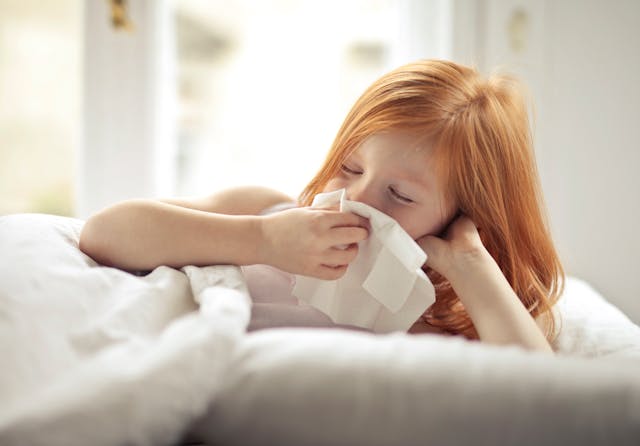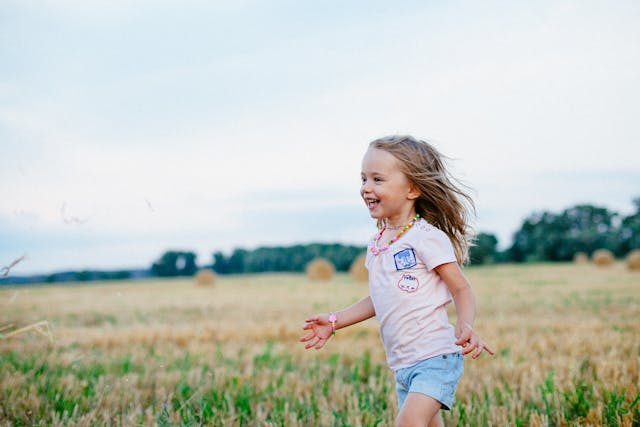Key takeaways
- Secondhand smoke poses dangers to children's well-being.
- Parents who smoke risk respiratory issues in children.
- Smoke exposure affects sense of smell development.
- Children may experience delayed cognitive and physical development.
- Risks include bronchitis, pneumonia, and childhood asthma.
As a parent, your first instinct is likely to protect your children from harm and guide them to grow into the best versions of themselves.
However, if you’re also a smoker, it’s crucial to consider quitting as soon as possible. Otherwise, you may be unknowingly putting your children at risk.
Cigarette smoke contains several hazardous chemicals that can cause lasting damage to your children’s airways and overall health.
This is especially concerning for babies and infants, as they are particularly vulnerable. Exposure to secondhand smoke can lead to respiratory infections, growth delays, severe asthma, and other breathing issues.
Chat to a prescriber
Bulk-billed phone consultations
TGA-authorised clinicians
Nicotine vaping scripts available
Quitting smoking might be extremely challenging if you’re a long-time smoker, but doing so to protect your children from these serious health risks will offer them a healthier future.
Let’s explore some of the harmful effects secondhand smoke has on children when adults around them continue to smoke.
Reduced Sense of Smell
Do you have little ones around the age of 2 or 3? At this stage, their five senses are still developing, so it’s important to keep them away from harmful chemicals.
If you’re a smoker, be aware that one of the biggest risks of secondhand smoke is how it can seriously affect children’s sense of smell and taste.
The smoke you exhale can irritate their delicate olfactory receptors, which are responsible for helping them identify different smells.
Regular exposure to cigarette smoke can lead to long-term damage to these receptors, potentially dulling or even completely shutting down their sense of smell.
The sad truth is, any harm done to a child’s sense of smell might never fully heal.
So, if you want to protect their senses and ensure they grow up happy and healthy, the best thing you can do is quit smoking—for their sake.
Delayed Development
Secondhand smoke can significantly slow down or even impair your children’s physical and cognitive development.
Young children, especially as young as 2, who are exposed to high levels of tobacco smoke indoors, are at serious risk of developing major respiratory issues and delays in their cognitive growth.
You wouldn’t want your child to struggle with cognitive impairments, as this can make reading, writing, listening, and even understanding the world around them more difficult.
These challenges can follow them into later years, hindering their ability to learn, manage daily tasks, and ultimately achieve their full potential.
As a parent, the thought of your child suffering from lung problems or being unable to fully develop their learning abilities at such a tender age is heartbreaking.
Quitting smoking for good is one of the most impactful steps you can take to protect them from long-term health issues and give them the best chance for a bright, healthy future.
Increased Risk of Bronchitis
Speaking of respiratory problems, your child is at a high risk of suffering from bronchitis at a young age due to secondhand smoke.
The unsafe chemicals in tobacco smoke that cause much more frequent bouts of bronchitis in adults also cause the same effect on young children. In fact, it’s much more dangerous for children because smoke is one of the biggest causes of chronic bronchitis in the developing lungs of young kids.
Chronic bronchitis occurs when the child’s bronchial tubes in the lungs get filled with smoke. The smoke irritates these tubes and causes inflammation, creating more mucus that makes it hard to breathe.
Children with recurring chronic bronchitis are also at a high risk of pneumonia, a bacterial infection of the lungs, which can lead to severe consequences without proper treatment.

High Likelihood of Childhood Asthma
Aside from the increased frequency of bronchitis and a higher risk of pneumonia, the developing lungs of young children are also in danger of recurring asthma attacks.
Smoke irritates a child’s airways, narrowing them and increasing mucus levels inside the lungs. When this happens, they may report their chest tightening and have difficulty breathing most of the time.
Ceasing smoking indoors and outdoors with children will prevent the likelihood of asthma and asthma attacks caused by cigarette smoke. There is strong evidence that continuous exposure to cigarette smoke is one of the primary causes of asthma attacks in very young children, toddlers, and teenagers.
It’s very clear, the passive secondhand smoke children inhale is extremely dangerous to their health.
Decreased Physical Fitness
People who smoke are typically at a lower level of physical fitness than those who do not. Smoking irritates and causes damage to a smoker’s lungs, reducing the body’s capacity to process oxygen.
Unfortunately, parents who smoke are also likely to have children who are in poor physical shape in comparison to their peers because their lungs have been damaged in the same way.
Children who live in smoking households are most likely to perform poorly in vigorous physical activities. If they were trying out for the rugby or basketball team, they could expect to have a subpar performance compared to their teammates.
Any smoking parent who wants to see their kids grow to their full potential should support them by kicking their smoking habit.

Summary
Parents are always prepared and vigilant about any danger to their children. After reading this post, smoking parents should have realised the immense dangers of cigarette smoke to kids and to themselves. By quitting today, you’ll have healthier children who have a chance to live their life to the fullest.
We understand that quitting smoking can be difficult even for the most loving parents. We know you’re reading this post because you want to know the dangerous consequences of smoking on your children, and because hopefully you want to stop smoking for good.
Smokefree Clinic gives you access to many medically reviewed and trustworthy resources that can inform and aid you in your path to wellness, so have a look around!
If you’re ready to get started, Smokefree can connect you to Australian healthcare professionals who excel in helping patients quit smoking for good.
Link Reference:
- https://www.ncbi.nlm.nih.gov/pmc/articles/PMC8513457/
- https://www.ncbi.nlm.nih.gov/pmc/articles/PMC6398167/
- https://www.sciencedirect.com/science/article/abs/pii/S0892036204000030#preview-section-references
- https://respiratory-research.biomedcentral.com/articles/10.1186/1465-9921-12-5
- https://pubmed.ncbi.nlm.nih.gov/24916736/
- https://www.ncbi.nlm.nih.gov/pmc/articles/PMC8307148/

